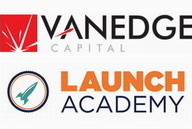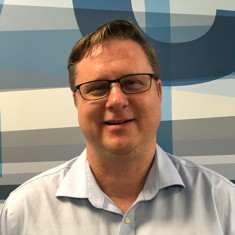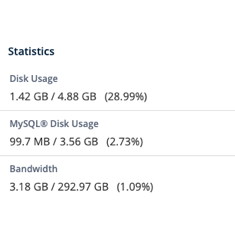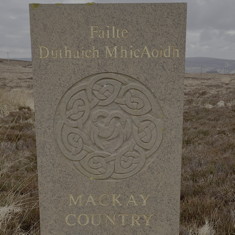Amy Rae @ Launch Academy
August 9th, 2013
Today I attended another Lunch n’ Learn event at the Launch Academy. Today’s presenter was Amy Rae of Vanedge Capital, a VC fund in Vancouver focussed on digital media. The format was Q&A and I took quite a few notes. They are presented below, all factual inaccuracies are my own.
Questions from the audience are in italics.
- Lots more seats laid out than usual, older crowd too.
- Amy used the term “mandate” not investment philosophy.
- Vanedge is a 137 million dollar fund and a Series A investor.
- Investment Rounds: Accelerator -> Seed -> Series A
- Nice to have $500,000 to a million dollars in revenue, prior to Series A.
- VCs provide funds for scaling.
- How many months of trailing revenue are you looking for?
- Vanedge has done seed deals in the past, but not their mandate.
- It is all about repeatability, want to see ‘actuals’ not proforma financials.
- Series A is risky but less risky than Seed investing.
- 3 Focuses of fund:
- Infrastructure lead by Moe Kermani
- Gaming lead by Tony Lam
- Hard to monetize gaming
- Backing a lot of analytics companies
- Looking less at gaming than earlier in the fund’s life
- Digital Media lead by Amy
- Looking a lot at marketing automation
- Big Data
- Also security which overlaps with Infrastructure
- Paul Lee is the managing director, he raised the fund after leaving EA.
- In a first fund not a lot of banks and pension funds are LPs, mostly high net worth individuals.
- The best thing Vanedge can offer is introductions. 2nd Best Thing is operational experience.
- Vanedge is perhaps a little more hands on than other Venture Capital companies.
- Mentions Grow Conference is coming up next week.
- When should you approach a VC is a common question?
- Will always take coffee even if a company is at too early of a stage for the fund to consider investing.
- When giving the pitch, we (Vanedge) need to understand at the simplest level, the simplest terms. Those that have the best understanding can explain their idea in the simplest terms.
- When pitching, if questions throw you off, you don’t know your pitch well enough.
- Third when pitching, the VCs are really there to meet the people, want to invest in people which they want to work with and that they can trust.
- How you deal with assholes is important.
- VCs talk to everybody, it is there job, they have a mandate, the 137 million has to be invested somewhere. 50% of fund is already allocated.
- 2-5 million per investment is the Vanedge sweet spot. Also need to reserve money for follow on investments, to prevent dilution in later rounds.
- Does the length of the Boot Strap period matter?
- Amy likes entrepreneurs who are conservative in managing their money. Sees a boot strapped company as a positive.
- Yellow flag for Amy is when a fund company has $500,000 left in the bank, as $500,000 can go out the door quickly.
- Can you name any LPs?What about LP’s geographic location?
- Amy advised to look for a VC fund investor that is early in the fund’s life so you don’t have extra pressure to exit.
- A lot of Chinese influence at Vanedge. LPs with a background in Real Estate and Steel, some in Media and Medical.
- One guy keeps asking the hard questions, I approached him later and found out his company is called planetECG.
- VendAsta out of Saskatoon was a frequently mentioned portfolio company. An LP in Vanedge is a CEO of restaurant chain, so VendAsta’s product was given a trial by the restaurant chain. This was an example of how Limited Partners can be leveraged by the fund.
- Vanedge has also used existing portfolio companies to test a potential new investment’s technology.
- Amy doesn’t have a heavy tech background, Moe does.
- Vanedge always gets an outsider to do technical due diligence.
- What kind of metrics does Vanedge want to see?
- Depends on the industry.
- SASS?
- Recurring revenue and traction.
- Lifetime value of a client is another metric Amy looks at. VendAsta is a SASS company, also a white label model company. VendAsta does “reputation intelligence” according to Amy.
- What is the recurring monthly revenue of a company that Vanedge invests in?
- Number isn’t as important, more important is the repeatability of sales.
- Need to be in operation for 2-3 years for customer acquisition cost numbers to solidify.
- Amy has seen one company in 7 years hit their forecast. They always try to tie compensation to the forecast.
- We (the VCs) shouldn’t care about your forecast more than you.
- When Vanedge start into due diligence they build their own financial models.
- Does Vanedge have a preference towards leading a round versus being part of a syndicate?
- Vanedge cares about having a board seat. Vanedge has been the lead investor in most of their investments. Some VCs only invest if they are lead, others will never lead a round. Vanedge is more flexible in this regard than some other venture funds.
- VendAsta investment is syndicated with BDC and a Valley VC fund (who’s name I didn’t hear).
- What do you look for as a Series A investor in the previous investors in a company?
- Care about motivation.
- What are the common mistakes you have to clean up, prior to closing out an investment round?
- A lot of little investors can be problematic.
- What is the minimal potential market size Vanedge looks for?
- VCs always work back from market size. Vanedge is also a startup. Amy considers how big a company needs to grow in order to generate a positive return for our investors.
- Rule of thumb, can this company be valued at 300 million?
- Revenue multiple matters, varies by industry/market/niche.
- Many investment deals don’t make sense to be VC backed due to the high cost of capital.
- I asked if Vanedge has an exit preference?
- Never exited to a limited partner yet, as to preferring IPO or private sale?
- Strategic exit is probably the best.
- Look for a potential portfolio company that has multiple ways to exits.
- Amy has seen companies go out of business only to get a new follow-on investment literally at the last possible moment.
- Time period to exit is 3-5 years, pretty standard for the industry.
- 70 million left to be invested in Vanedge’s fund, 6-8 million per company, plus money set aside, currently 9 companies in portfolio, so approximately 10 more investments will be made, how soon do you have to make those 10 new investments?
- LPs need to be approached for every investment during the term sheet negotiation phase. Takes about 30 days to do due diligence, 30-60 days from initial engagement to investment close, probably closer to 3 months. Limited Partners have 2 weeks to put their portion of the investment into Vanedge’s account.
- There has been team turnover at Vanedge, Paul has always been with the fund.
- Always want to look for quality companies.
- Less urgency now at Vanedge to make investments than when Amy started at fund.
- Amy stressed that Venture Capital is expensive capital.
- A hypothetical 4 million dollar deal will typically be done in tranches, perhaps 4 one million dollar investments each tied to a milestone.
- Not everyone likes milestones and tranches. Vanedge has an 8% cost of capital, so why not leave the money with the LPs?
- Very hard for a VC to say “I don’t want to fund this company anymore” once they have already invested in a company.
- How many companies have you wound down?
- Amy is still fairly early in her career and has never wound down any of her companies but at previous positions has watched co-workers wind down companies. [Insert sad panda]
- 9 active portfolio companies, but Vanedge has had 2 portfolio firms go bankrupt.
- The way you invest changes after you have failures on your fund’s books.
- How would you contrast Vanedge with another VC say one in the Valley?
- The Valley will give you a higher valuation. But what matters is how much you return to your LPs. The Valley has it’s own rules due to increased average exit price.
- Amy advises Don’t value your company out of the ability to raise a next round.
- What are the biggest oversights and mistakes founders make on Term Sheets?
- Not knowing what you need board approval for when running your company.
- How the ‘vote’ is divided, making sure you still have enough ownership percentage.
- Amy likes ‘simple’ in term sheets.
- Mentioned Brad Feld’s book on being smarter than your Lawyer and Venture Capitalist.
I hope some people find these notes useful. If I made any egregious errors, hopefully someone corrects me in the comments. I’ve written more on venture capital over the years.
This entry was originaly posted on , it was last edited on and is filed under: Advice and tagged: Finance, Vancouver, Venture Capital.




